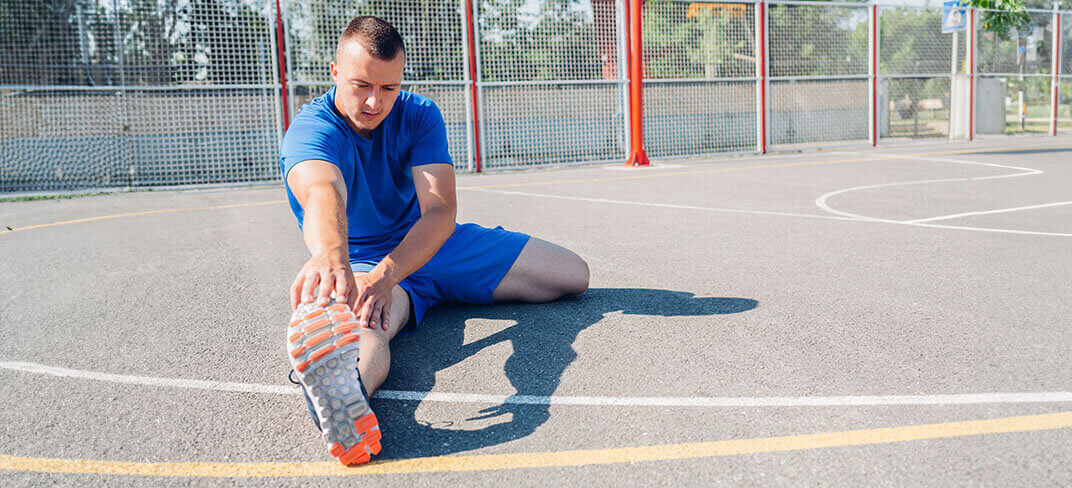What Is Concussion Baseline and Post-Injury Testing?

Concussion testing plays a vital role in ensuring proper evaluation, diagnosis, management, treatment, and return to play decisions for concussions. Experts at UPMC Sports Medicine use the ImPACT® test for both baseline and post-injury testing.
If you play sports yourself, or have athletes in your family, here's what you need to know about concussion testing.
What Is Baseline Concussion Testing?
Baseline testing measures your brain function in a normal, healthy state — before a concussion occurs.
If you happen to suffer a concussion, doctors will test you again and use your scores to help decide:
- What type of concussion you may have.
- How to create a treatment plan customised to you.
- When it's safe for you to return to your sport or activities.
What Is ImPACT?
ImPACT (immediate post-concussion assessment and cognitive testing) is a computer-based assessment tool. It's the most effective tool for measuring a person's typical neurocognitive state to gather baseline data for diagnosing and managing concussions.
Pioneered by some of the experts who later began the UPMC Sports Medicine Concussion Program, ImPACT sets a normal brain function baseline.
There are two types of tests:
- Adult ImPACT — for ages 10 and up.
- Paediatric ImPACT — for ages 5-9.
How Does ImPACT Work?
The computer-based adult and tablet-based children's ImPACT tests take about 20 minutes.
They look at and record many aspects of an athlete's cognitive state, such as:
- Verbal and visual memory.
- Brain processing speed.
- Reaction time.
These tests alone do not diagnose a concussion. Experts use them to get baseline data on an athlete's “normal" state as part of the assessment process for head trauma management.
How Paediatric and Adult ImPACT Testing Differ
In place of the adult test for those ages 10 and up, the paediatric ImPACT test is for children ages 5-9.
Children are different from adults — physically, mentally, and cognitively. The children's version of ImPACT is mindful of these developmental differences. In fact, 89% of users rate the subtests as fun and easy to understand.
Experts have adapted the adult version of this thorough exam to make it more effective for children in the following ways:
- Questions are at the child's developmental level and use simple terms. For instance, we use “tummy ache" instead of nausea and “tired" rather than fatigue.
- We want to make the child feel at ease. Even something as simple as having a proper chair for them can help.
- The interviewer follows up on discrepancies between what the child reports and what the parent reports. Children may tend to over- report some issues that parents might deny, such as trouble sleeping and nausea, and parents tend to over-report some issues that children deny, such as moodiness and cognitive issues.
- The test stimuli for the paediatric ImPACT are more suited for their age. For example, the section that tests processing speed or reaction times becomes a “stop and go" traffic light game. And to measure visual memory, we use a matching game with animals and food.
- Children take the test on a tablet instead of a computer to allow for better engagement.
Because a child's brain is still developing, it may prove more prone to injury and take more time to recover.
In addition to a complete assessment, ImPACT can help with the diagnosis of a concussion. When diagnosed, we can design a custom treatment plan and start rehab.
Post-Concussion Neurocognitive Testing
Post-injury concussion testing helps experts make decisions about treatment by comparing the healthy brain function ImPACT baseline test data to the possibly altered brain function ImPACT post-injury test data. When an athlete suffers a concussion, post-injury testing and treatment are crucial.
Our concussion experts use the baseline data as part of the post-injury exam. They may also conduct other brain function tests to better manage each athlete's specific case.
If you or your child sustained a concussion before taking the ImPACT test, we suggest seeking care from our concussion experts.
For more information, visit the UPMC Concussion Network with locations throughout Ireland.